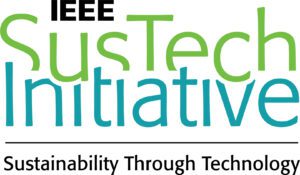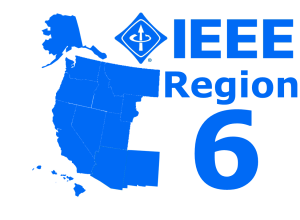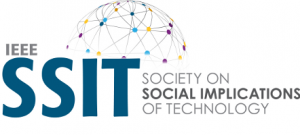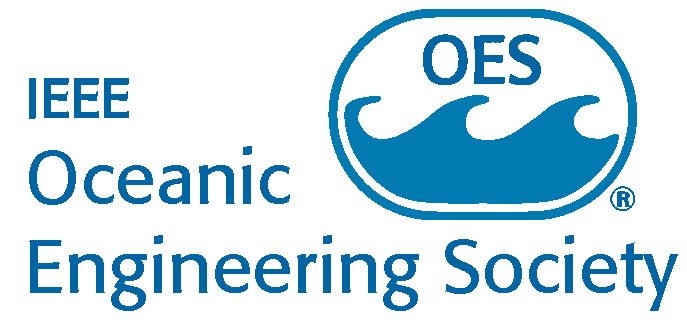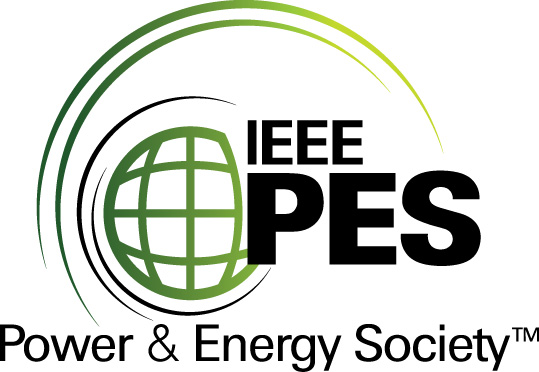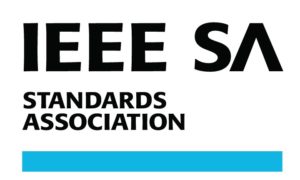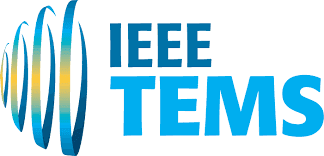Sustainability Forum
 The 2025 IEEE SusTech Sustainability Forum brings together researchers, industry professionals, and legal experts to explore innovative solutions for environmental challenges. Through discussions, presentations, and networking opportunities, participants share cutting-edge research, industry best practices, and emerging technologies that drive sustainability across various sectors. The forum also includes a legal perspective, with an attorney discussing key environmental regulations and policies that impact sustainability efforts.
The 2025 IEEE SusTech Sustainability Forum brings together researchers, industry professionals, and legal experts to explore innovative solutions for environmental challenges. Through discussions, presentations, and networking opportunities, participants share cutting-edge research, industry best practices, and emerging technologies that drive sustainability across various sectors. The forum also includes a legal perspective, with an attorney discussing key environmental regulations and policies that impact sustainability efforts.
The 2025 Sustainability Forum is organized in partnership with the Armenian Engineers and Scientists of America (AESA).
![]() Sustainability Forum approved for IEEE CEU/PDH. Fill out form here and return to SusTech.
Sustainability Forum approved for IEEE CEU/PDH. Fill out form here and return to SusTech.
| Sustainability Forum Schedule | ||
| April 21 (Monday) 8am – 3pm | ||
| 07:30 AM | Setup | |
| Start | End | Session |
| 8:00 AM | 8:50 AM | Opening Remarks & Keynote – Isayan, Perkins, Coughlin, Megerdichian |
| 8:50 AM | 9:00 AM | Short Break |
| 9:00 AM | 9:50 AM | Adamian – “Green Hydrogen” and Ghafafian – “Decarbonization” |
| 9:50 AM | 10:00 AM | Short Break |
| 10:00 AM | 11:00 AM | Zohrabian – “Offshore Wind” |
| 11:00 AM | 11:10 AM | Short Break |
| 11:10 AM | 12:00 PM | Abrahamian – “Administrative Law and the Clean Air Act” |
| 12:00 AM | 1:00 PM | Lunch Break |
| 1:00 PM | 2:00 PM | Etezadi – “Hydrogen: Paving the Way to Net Zero Carbon Emissions” |
| 2:00 PM | 2:10 PM | Short Break |
| 2:10 PM | 3:00 PM | Khurram – “DERConnect – A state-of-the-art Distributed Energy Resources test facility” |
| 3:00 PM | Closing Remarks | |
Organizer:
 Linda Megerdichian is a Digital Hardware Design Engineer at Extron Electronics, specializing in digital logic design for high-speed signal processing devices. Alongside her engineering career, she is a lecturer at California State University, Northridge (CSUN) and serves on the advisory boards of Glendale Community College and Pierce College, shaping academic and industry connections.
Linda Megerdichian is a Digital Hardware Design Engineer at Extron Electronics, specializing in digital logic design for high-speed signal processing devices. Alongside her engineering career, she is a lecturer at California State University, Northridge (CSUN) and serves on the advisory boards of Glendale Community College and Pierce College, shaping academic and industry connections.
Linda served as President of the Armenian Engineers and Scientists of America (AESA) in 2024 and is now in her seventh year as a board member of the organization. She is also the IEEE Student Club Advisor, actively supporting the next generation of engineers. Additionally, she is an appointed member of Glendale’s City Charter Review Committee, contributing to local governance and policy development.
Driven by a passion for innovation and leadership, Linda lives by her motto:
“For me, even sky is not the limit anymore —it’s just the beginning.”
Speakers:
“Administrative Law and the Clean Air Act”
Tanya Abrahamian
Tanya will be presenting on developments in administrative law and Clean Air Act stationary source litigation. This includes the Greenhouse Gas Standards and Guidelines for Fossil Fuel-Fired Power Plants, the Ozone Transport Rule, and Regional Haze.
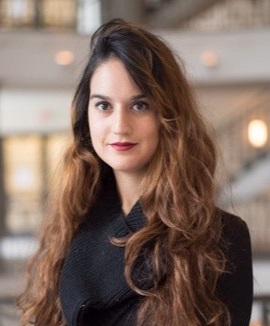 Tanya Abrahamian is an environmental policy advisor for an investor-owned utility. Prior to joining her current company, she spent over six years as an environmental policy analyst at the U.S. Environmental Protection Agency (EPA) primarily in the Office of Air Quality Planning and Standards where she worked on Clean Air Act rulemakings and guidance. Prior to joining EPA, Tanya worked as an environmental consultant and was a legal fellow with the Georgetown Climate Center.
Tanya Abrahamian is an environmental policy advisor for an investor-owned utility. Prior to joining her current company, she spent over six years as an environmental policy analyst at the U.S. Environmental Protection Agency (EPA) primarily in the Office of Air Quality Planning and Standards where she worked on Clean Air Act rulemakings and guidance. Prior to joining EPA, Tanya worked as an environmental consultant and was a legal fellow with the Georgetown Climate Center.
Tanya has a B.A. from UCLA in business economics (applied economics) where she studied carbon trading systems and a law degree from the Georgetown University Law Center where she focused on energy and environmental law.
Serge Adamian, Hydrogenian, Inc.
Hydrogenian aims to create cost-competitive carbon capture and utilization (CCU) technology by novel integration of green hydrogen electrolysis with CO2 capture, leading to green methanol synthesis and innovative development of advanced high value green thermoplastics.
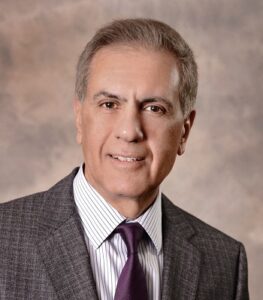 Serge Adamian is founder of Hydrogenian, Inc., a company focused on development of electrolyzer, carbon capture, and high-value CO2 sourced products. Prior to Hydrogenian, Adamian managed Ecotrade, Inc, a consulting company with focus on assessment of commercial-scale renewable energy projects. He also managed SunChiller, Inc a company that marketed high temperature solar thermal systems and collectors for industrial, commercial, and residential applications. In that capacity he initiated multiple award-winning large-scale solar thermal installations in the United States.
Serge Adamian is founder of Hydrogenian, Inc., a company focused on development of electrolyzer, carbon capture, and high-value CO2 sourced products. Prior to Hydrogenian, Adamian managed Ecotrade, Inc, a consulting company with focus on assessment of commercial-scale renewable energy projects. He also managed SunChiller, Inc a company that marketed high temperature solar thermal systems and collectors for industrial, commercial, and residential applications. In that capacity he initiated multiple award-winning large-scale solar thermal installations in the United States.
Prior to SunChiller and Ecotrade, Adamian founded and managed H2 ECOnomy, a company focused on the development and marketing of Hydrogen fuel cells and SolarEn International Corporation based in the United States and Armenia engaged in the diverse fields of solar thermal collector manufacturing and deployment, software development, and wind-farm project assessment.
Adamian’s work experience includes US Export Council for Renewable Energy based in Washington, DC, Los Angeles Department of Water and Power, and Parsons based in Pasadena, California.
Adamian has been retained as consultant by the US Agency for International Development and US Department of Energy’s National Renewable Energy Laboratory and Sandia National Laboratories. He has advised foreign governments on strategies and policies for deployment of renewable energy.
Adamian has BS degree in civil engineering, MS degree in engineering with focus on renewable energy, and MBA. He is registered as Professional Engineer (PE) in the State of California. He is a Certified Energy Manager (CEM).
Adamian has authored multiple technical papers and reports. He is a past president and current board member of the Southern California Chapter of the Association of Energy Engineers and a past president of the Armenian Engineers and Scientists of America. He has been a member of the board of directors of ArmElNet, an electric utility company in Armenia and a member of the board of directors of the Armenian Development Agency tasked with the promotion of investments and exports.
“Hydrogen: Paving the Way to Net Zero Carbon Emissions”
Razieh Etezadi, University of Southern California (USC)
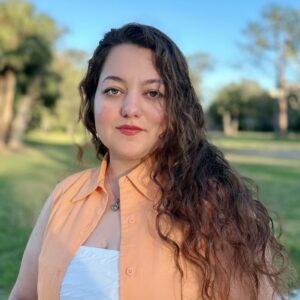 Razieh Etezadi is a Technical Lead and Lead Designer at the University of Southern California (USC), where she plays a key role in two California Energy Commission (CEC)-funded research projects. With expertise in chemical engineering and process design, she leads green hydrogen production and biogas upgrading efforts. Razieh successfully managed the design, construction, and operation of a high-purity hydrogen production facility capable of generating over 25 kg of hydrogen daily and a biogas plant that improved methane purity by over 90%.
Razieh Etezadi is a Technical Lead and Lead Designer at the University of Southern California (USC), where she plays a key role in two California Energy Commission (CEC)-funded research projects. With expertise in chemical engineering and process design, she leads green hydrogen production and biogas upgrading efforts. Razieh successfully managed the design, construction, and operation of a high-purity hydrogen production facility capable of generating over 25 kg of hydrogen daily and a biogas plant that improved methane purity by over 90%.
She holds a PhD in Chemical Engineering from USC, where she received a prestigious five-year scholarship and the Merit Award for her research. Razieh has extensive experience in project management, process optimization, and system automation, using advanced tools like MATLAB, Aspen, and COMSOL to develop dynamic models and optimize energy consumption. Her work has significantly contributed to advancing sustainable energy systems, improving both process efficiency and safety.
Carineh Ghafafian, Postdoctoral Research Associate, USC
Technologies for CO2 capture, utilization, and storage play a critical role in mitigating CO2 emissions. This presentation explores the rationale for decarbonization and the suite of available and emerging CO2 capture technologies. An overview of potential pathways and materials that can be produced using captured CO2 are discussed.
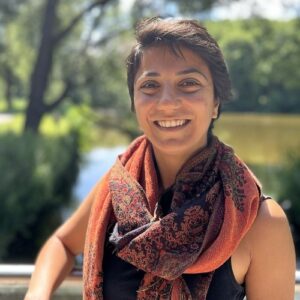 Carineh Ghafafian has had the privilege of balancing multiple perspectives in her experiences as a materials, mechanical, and aerospace engineer. She has worked at the intersection of all three fields on sustainable composite applications, including wind energy and hydrogen storage solutions. Within composites manufacturing, her work has focused on repairing components for extended service, incorporating recyclability into existing structures, and developing waste reduction production methods to directly address the need for end-of-life solutions.
Carineh Ghafafian has had the privilege of balancing multiple perspectives in her experiences as a materials, mechanical, and aerospace engineer. She has worked at the intersection of all three fields on sustainable composite applications, including wind energy and hydrogen storage solutions. Within composites manufacturing, her work has focused on repairing components for extended service, incorporating recyclability into existing structures, and developing waste reduction production methods to directly address the need for end-of-life solutions.
In addition to her student mentoring at work, she has made conscious efforts to weave in teaching of STEM topics to diverse audiences, including women from migrant backgrounds who resettled in Germany and pre-university students in small towns in Armenia. Her experiences in different industries and multiple countries have driven her to advocate for an end-of-life prioritization when approaching design problems.
“DERConnect – A state-of-the-art Distributed Energy Resources test facility”
Adil Khurram, University of California, San Diego
DERConnect is an advanced testing facility at the University of California, San Diego (UCSD), funded by the National Science Foundation to support technology evaluation, demonstration, proof-of-concept validations, and pre-deployment testing in a fully integrated programmable grid environment. The testbed includes a diverse set of controllable resources such as battery energy storage systems, electric vehicles chargers, solar/PV, HVACs, etc. that spans the entire UCSD campus along with state of the art power systems simulators and microgrid controllers. This talk focuses on how utilities, OEMs, and technology providers can leverage this testbed to achieve sustainability goals.
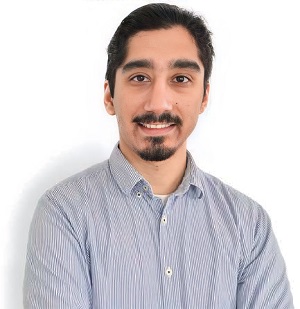 Adil Khurram is an assistant project scientist at University of California, San Diego. He is currently working on the NSF funded project Distributed Energy Resources Connect (DERConnect) which is a state of the art national testbed for distributed controls in power and energy systems. He holds a PhD from the University of Vermont (UVM) in Electrical Engineering focusing on aggregate modeling and control of distributed energy resources.
Adil Khurram is an assistant project scientist at University of California, San Diego. He is currently working on the NSF funded project Distributed Energy Resources Connect (DERConnect) which is a state of the art national testbed for distributed controls in power and energy systems. He holds a PhD from the University of Vermont (UVM) in Electrical Engineering focusing on aggregate modeling and control of distributed energy resources.
Angineh Zohrabian, Energy and Environmental Economics
California has some of the best offshore wind resources in the world, and as a result, this resource can help the state achieve its goal of 100% clean electricity by 2045. The role of offshore wind and the scale of its development needed to complement California’s electric power supply system depend on factors such as offshore wind resource costs, technology readiness, policy ambition, and other competing resource costs and availability, among others.
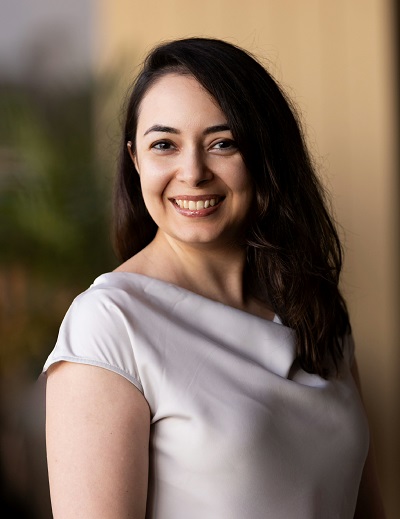 Angineh Zohrabian is a managing consultant at Energy and Environmental Economics Inc. (E3). She specializes in integrated resource planning for decarbonizing electricity systems, utilizing data-driven methods and decision-making frameworks to help utilities, regulatory agencies, and private corporations navigate a path to a low-carbon future. For over three years, she has supported various policy decisions and clean energy roadmaps for several regulatory agencies, including the California Public Utilities Commission for the adoption of the latest Preferred System Plan and the last three transmission plans, and the California Air Resources Board for the adoption of a carbon-neutral economy target by 2045. Currently, she serves as the technical lead for E3’s electricity capacity expansion model, where she continuously explores opportunities to evaluate the role of emerging technologies, such as offshore wind, hydrogen, and long-duration energy storage.
Angineh Zohrabian is a managing consultant at Energy and Environmental Economics Inc. (E3). She specializes in integrated resource planning for decarbonizing electricity systems, utilizing data-driven methods and decision-making frameworks to help utilities, regulatory agencies, and private corporations navigate a path to a low-carbon future. For over three years, she has supported various policy decisions and clean energy roadmaps for several regulatory agencies, including the California Public Utilities Commission for the adoption of the latest Preferred System Plan and the last three transmission plans, and the California Air Resources Board for the adoption of a carbon-neutral economy target by 2045. Currently, she serves as the technical lead for E3’s electricity capacity expansion model, where she continuously explores opportunities to evaluate the role of emerging technologies, such as offshore wind, hydrogen, and long-duration energy storage.
Before joining E3, she earned a Ph.D. in Environmental Engineering from the University of Southern California, where she explored greenhouse gas mitigation strategies, particularly in the intersection of water and energy systems. Her work has been published in journals such as Applied Energy, Energy Policy, and Journal of Cleaner Production.




